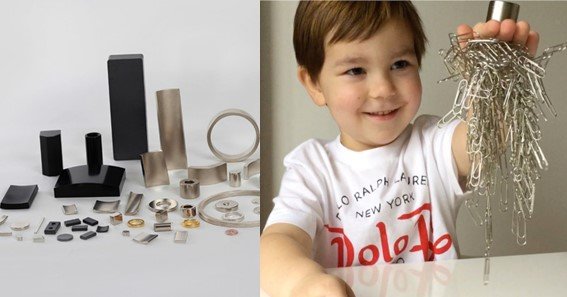Magnets are essential components in many devices, from simple fridge magnets to complex industrial machinery. However, even though they are often called “permanent” magnets, they are not immune to losing their magnetic strength. This process, known as demagnetization, can occur due to several factors, leading to a gradual or sudden loss of magnetic properties.
What Causes Magnets to Lose Their Magnetism?
- Heat:
- One of the most significant factors in demagnetization is heat. When a magnet is exposed to temperatures above a certain threshold, known as the Curie temperature, the alignment of its magnetic domains becomes disrupted. As a result, the magnet loses its magnetic properties either partially or entirely. For example, materials like nickel have a Curie temperature of 358°C (676°F), beyond which they can no longer maintain their magnetism..
- Physical Damage:
- Physical impacts, such as dropping or striking a magnet, can also cause it to lose its magnetism. These forces can disturb the alignment of the magnetic domains, reducing the magnet’s strength. Even slight chipping or cracking can diminish the magnetic field by altering the structure of the magnet.
- External Magnetic Fields:
- Exposure to strong external magnetic fields can also lead to demagnetization. When a magnet is placed near another strong magnet or an electromagnet, the external field can realign its magnetic domains in a way that weakens or even reverses its magnetic polarity.
- Corrosion and Aging:
- Over time, magnets can slowly lose their strength due to corrosion, especially if they are exposed to moisture or corrosive environments. Additionally, magnets naturally weaken as their atomic structures undergo slight changes with age, though this process typically takes decades.
How to Prevent Demagnetization
To extend the life of your magnets and prevent premature demagnetization, consider the following tips:
- Store Properly: Keep magnets away from extreme temperatures, and store them with their north and south poles aligned with those of other magnets.
- Handle with Care: Avoid dropping or striking magnets to prevent physical damage.
- Shield from Strong Magnetic Fields: Store magnets away from strong external magnetic fields to maintain their original alignment.

Conclusion
Understanding how and why magnets lose their magnetism is crucial for maintaining their effectiveness in various applications. By taking steps to protect your magnets from heat, physical damage, and external magnetic fields, you can significantly extend their useful life.
FAQ
Can magnets lose their magnetism over time?
Yes, magnets can gradually lose their magnetism over time due to factors like heat, physical damage, and exposure to other magnetic fields.
What is the Curie temperature?
The Curie temperature is the temperature at which a magnet loses its magnetic properties due to the disruption of its magnetic domain alignment.
How can I prevent a magnet from losing its magnetism?
Store magnets properly, handle them with care, and avoid exposing them to extreme temperatures or strong external magnetic fields.
Can a demagnetized magnet be re-magnetized?
In some cases, a demagnetized magnet can be re-magnetized by exposing it to a strong magnetic field in the proper orientation.
Why does physical damage reduce a magnet’s strength?
Physical damage can disturb the alignment of a magnet’s domains or reduce its volume, both of which can weaken its magnetic field.










